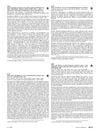 May 2017 in “Journal of The American Academy of Dermatology”
May 2017 in “Journal of The American Academy of Dermatology” The new baby shampoo and wash with stearic acid is safe and potentially effective for nourishing babies' skin.
 44 citations,
January 2010 in “International journal of trichology”
44 citations,
January 2010 in “International journal of trichology” Choosing the right shampoo for your hair type is crucial.
10 citations,
August 2021 in “Cosmetics” The best shampoo formula used 1% high-weight hyaluronic acid, 10% acidic sophorolipid, and 1% salt for effective hair conditioning and cleansing without sulfates or silicones.
 2 citations,
August 2021 in “Journal of pharmaceutical research international”
2 citations,
August 2021 in “Journal of pharmaceutical research international” Fenugreek seed extract in a nanoparticle gel could be a promising new treatment for hair loss.
 1 citations,
November 2023 in “Journal of cosmetic dermatology”
1 citations,
November 2023 in “Journal of cosmetic dermatology” The new anti-dandruff shampoo with ketoconazole-coated zinc oxide nanoparticles is more effective against dandruff.
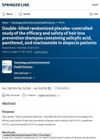 1 citations,
April 2022 in “Toxicology and Environmental Health Sciences”
1 citations,
April 2022 in “Toxicology and Environmental Health Sciences” The shampoo with salicylic acid, panthenol, and niacinamide is effective and safe for preventing hair loss in people with alopecia.
 September 2023 in “International Journal of Cosmetic Science”
September 2023 in “International Journal of Cosmetic Science” Both shampoos increased scalp germ numbers but did not change the overall microbial community composition.
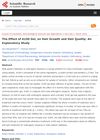 January 2016 in “Journal of Cosmetics, Dermatological Sciences and Applications”
January 2016 in “Journal of Cosmetics, Dermatological Sciences and Applications” A100 gel may increase hair growth without side effects, but more research is needed.
 January 1997 in “Elsevier eBooks”
January 1997 in “Elsevier eBooks” The document explains how shampoos clean, rinses condition, one-step shampoos offer convenience, and hair growth promoters aim to prevent hair loss, emphasizing the importance of scientific evidence for their effectiveness.
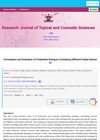 1 citations,
December 2022 in “Research journal of topical and cosmetic sciences”
1 citations,
December 2022 in “Research journal of topical and cosmetic sciences” The herbal shampoo cleans well, promotes hair growth, and improves hair quality.
 December 2023 in “Azerbaijan Pharmaceutical and Pharmacotherapy J”
December 2023 in “Azerbaijan Pharmaceutical and Pharmacotherapy J” The minoxidil gel could be a better treatment for hair loss than traditional forms.
 47 citations,
July 2014 in “European Journal of Pharmaceutics and Biopharmaceutics”
47 citations,
July 2014 in “European Journal of Pharmaceutics and Biopharmaceutics” Scientists created a gel with nanoparticles to deliver medicine to hair follicles effectively.
 1 citations,
February 2017 in “Journal of pharmacology & clinical research”
1 citations,
February 2017 in “Journal of pharmacology & clinical research” The herbal hair gel with Eclipta alba and Lippia nodiflora extracts was more effective at growing hair than the control gel and minoxidil.
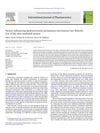 16 citations,
March 2008 in “International journal of pharmaceutics”
16 citations,
March 2008 in “International journal of pharmaceutics” Different factors like pH, gel type, and chemical enhancers affect how well hydrocortisone gets into hair follicles, and less hydrated skin doesn't work well with the test method.
 6 citations,
February 1974 in “The BMJ”
6 citations,
February 1974 in “The BMJ” The document concludes that scalp disorders can be treated with hair washing, specific shampoos, medications, and sometimes surgery or hair transplants, but hereditary baldness is untreatable.
 February 2024 in “Jurnal Tata Rias”
February 2024 in “Jurnal Tata Rias” Aloe vera and lime shampoo effectively reduces hair loss and improves scalp cleanliness.
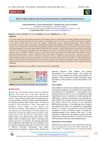 November 2022 in “International journal of pharmaceutical sciences review and research”
November 2022 in “International journal of pharmaceutical sciences review and research” Adding value and variety to herbal products helps promote them and can make India a leading exporter.
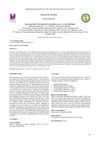 September 2019 in “International journal of research in ayurveda and pharmacy”
September 2019 in “International journal of research in ayurveda and pharmacy” Ayurvedic treatment with Bhringraj Vati and coconut oil was safe and effective for reducing hair fall.
 65 citations,
November 2016 in “Journal of The American Academy of Dermatology”
65 citations,
November 2016 in “Journal of The American Academy of Dermatology” The document concludes that early recognition and treatment of primary cicatricial alopecia is crucial to prevent permanent hair loss.
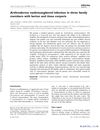 22 citations,
January 2009 in “Medical mycology”
22 citations,
January 2009 in “Medical mycology” A family got a fungal infection from a boy who had contact with rabbits, but they all recovered with treatment.
 10 citations,
January 2010 in “PubMed”
10 citations,
January 2010 in “PubMed” Adjuvants, diet changes, and laser therapy may improve male pattern hair loss.
 7 citations,
December 2019 in “American Journal of Clinical Dermatology”
7 citations,
December 2019 in “American Journal of Clinical Dermatology” Topical therapies show promise for hair loss and acne treatment with minimal side effects.
 5 citations,
January 2019 in “Clinical Drug Investigation”
5 citations,
January 2019 in “Clinical Drug Investigation” Some off-label treatments increase hair density, but long-term safety unknown.
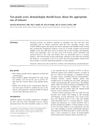 4 citations,
July 2016 in “Journal of cosmetic dermatology”
4 citations,
July 2016 in “Journal of cosmetic dermatology” Dermatologists should use hair relaxers carefully to avoid hair and scalp damage, following specific guidelines for application and maintenance.
 July 2024 in “Forum Dermatologicum”
July 2024 in “Forum Dermatologicum” Topical treatments for hair loss can be effective but need careful safety evaluation.
 193 citations,
January 2015 in “International journal of trichology”
193 citations,
January 2015 in “International journal of trichology” Dermatologists need to understand hair products to treat hair and scalp issues better.
 93 citations,
April 2012 in “International Journal of Cosmetic Science”
93 citations,
April 2012 in “International Journal of Cosmetic Science” Improving skin barrier and using antifungal treatments can help manage dandruff.
 48 citations,
January 2017 in “Skin Pharmacology and Physiology”
48 citations,
January 2017 in “Skin Pharmacology and Physiology” Finasteride-loaded nanoparticles may help treat alopecia.
 43 citations,
January 2013 in “Indian Journal of Dermatology, Venereology and Leprology”
43 citations,
January 2013 in “Indian Journal of Dermatology, Venereology and Leprology” The article concludes that advancements in hair cosmetics require dermatologists to stay informed about products and their potential risks, including allergies and higher risks for hairdressers.
 40 citations,
August 2018 in “Skin appendage disorders”
40 citations,
August 2018 in “Skin appendage disorders” Some alternative treatments for hair loss might work, but more research is needed.





























